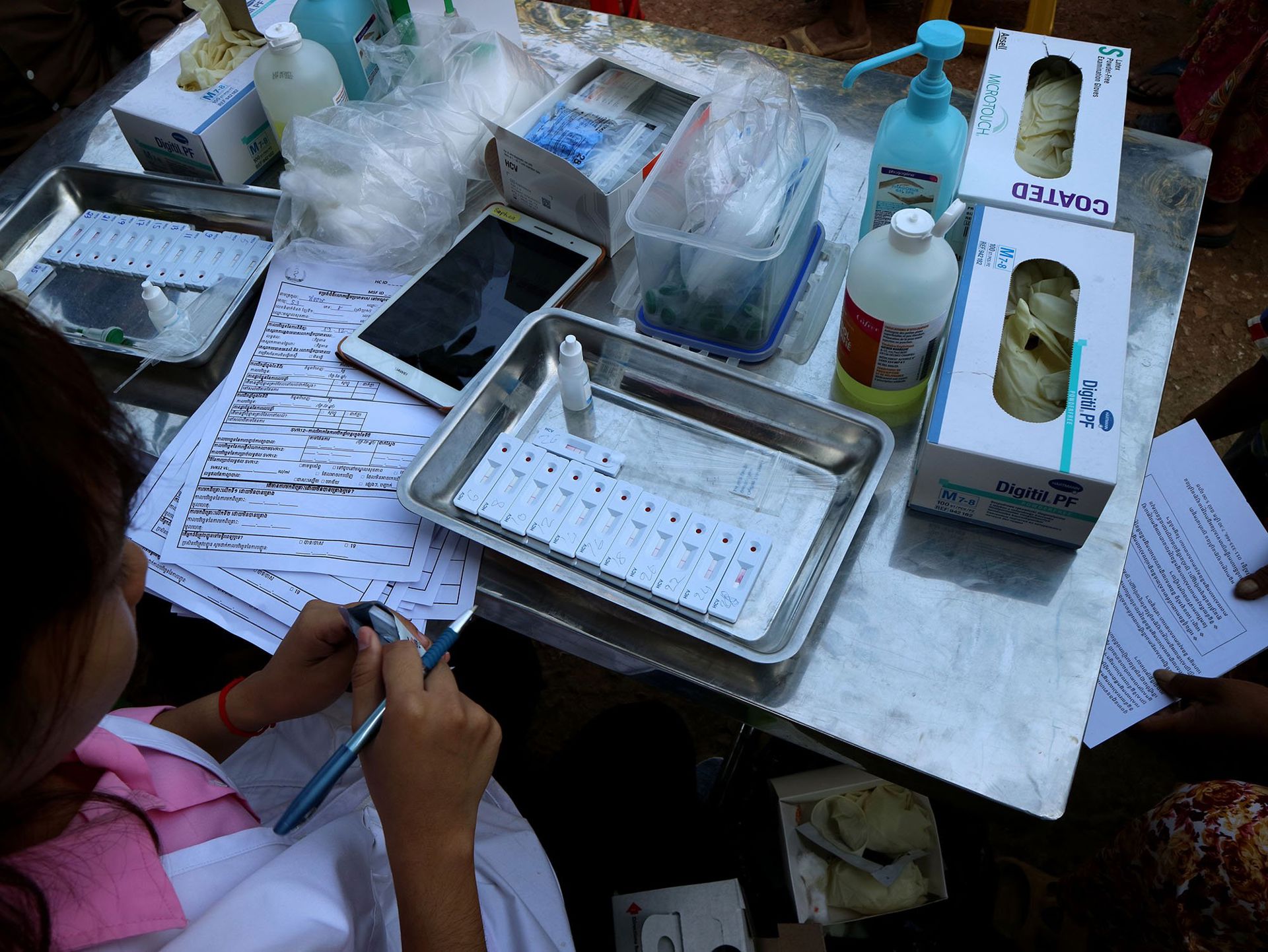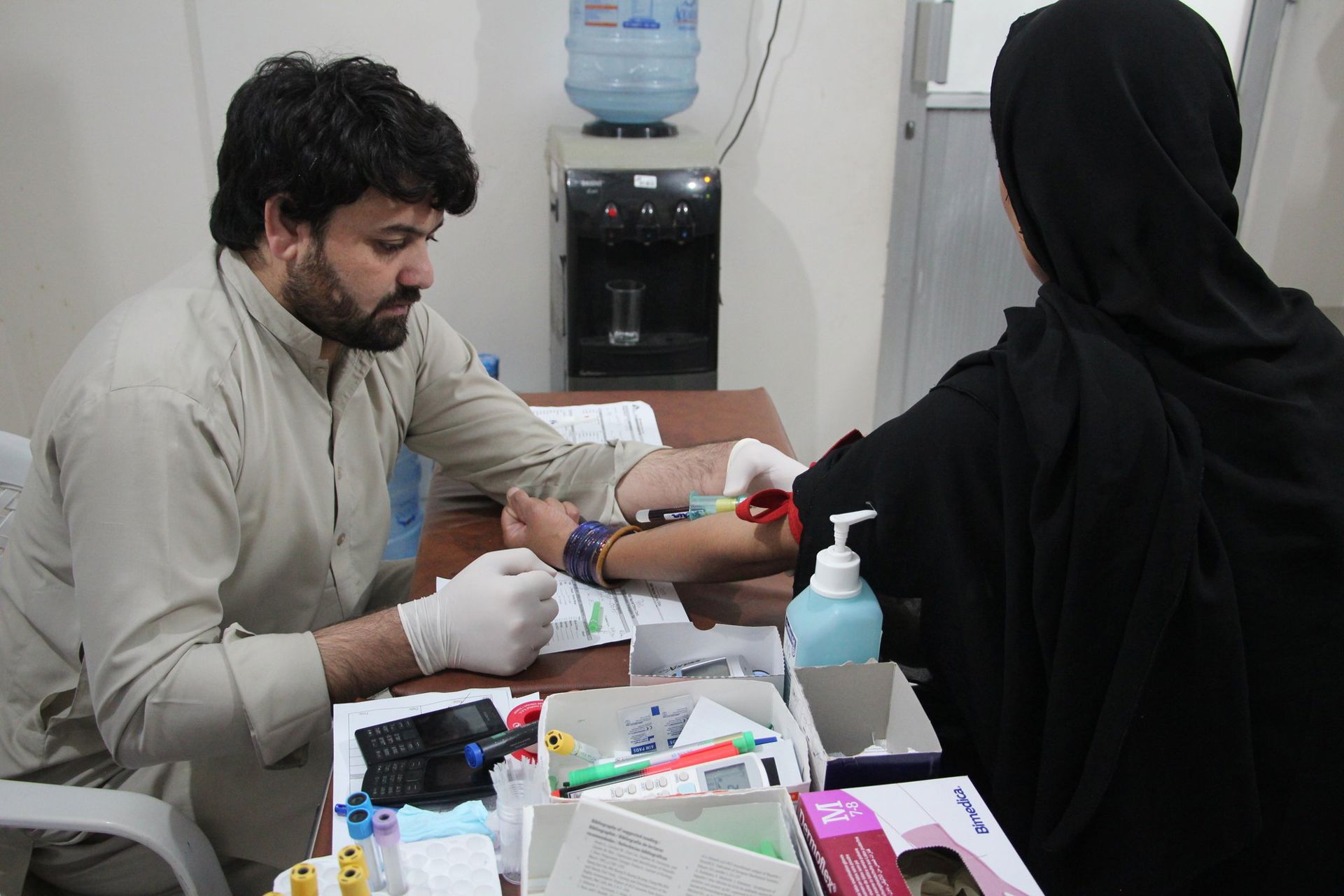A simplified model of care for hepatitis C patients in Cambodia has shown outstanding results with 97% of patients cured from the disease in just three months, Médecins Sans Frontières (MSF) said. Since 2016, MSF has treated more than 13,000 patients in Cambodia’s capital, Phnom Penh, through a simpler and more affordable model of care, a crucial requirement to widen treatment access and eliminate hepatitis C in the country.
Hepatitis C, a blood-borne virus that attacks the liver, is endemic in Cambodia. Although curable, hepatitis C still kills nearly 400,000 people each year globally, mostly from resulting complications, typically cirrhosis or liver cancer. To eliminate hepatitis C, large numbers of people must be screened to identify patients carrying the virus in order to treat them before it damages their livers. In recent years, a ground-breaking treatment known as direct-acting antivirals (DAAs) is available. It cures the hepatitis C virus in just 12 weeks and has significantly reduced side-effects, boosting patients’ motivation to finish the course of treatment.
Vanna Chou started DAA treatment a few weeks ago. “I had symptoms of hepatitis C: a headache, a fever and I felt cold,” he says. “I tried traditional medicine first, but this was not successful. After I saw on Facebook that MSF offers treatment in Phnom Penh, I decided to take the eight-hour bus ride from Siem Reap where I live. At first I was worried, I didn’t know there was a simple treatment for hepatitis C. But everything was well explained.”
In Preah Kossamak hospital, MSF is working alongside the Cambodian Ministry of Health to remove the obstacles patients face accessing treatment and to introduce innovative ways of diagnosing and treating hepatitis C.
“The simplified screening process means that patients no longer have to wait four to five months before their treatment starts – instead it takes just 10 days,” says MSF’s Dr Kim Sann. “Also, once they start their treatment, they now have a total of five consultations instead of 16. The treatment is simpler for the patients and it’s also more efficient for the clinic, as more people can be treated by the same team.”
Access to diagnosis and treatment is still virtually non-existent in much of the country. Patients used to visit the clinic eight times for the diagnosis to be completed before treatment even started. Now, the vast majority of patients gets treatment regardless of the type and stage of the disease, removing the need for most of the time-consuming pre-treatment analysis. The DAA treatment is also very safe, so additional systematic tests, which previously had to be done before treatment could start, are no longer necessary for most patients. The cure rate of patients completing the treatment remained stable at 97% while the simplifications were implemented.
This new model means that screening and treatment can happen more locally and cover wider areas. More steps will follow as MSF moves to decentralise its screening and treatment processes, making these available in health centres close to patients’ homes.
“Based on the treatment results shown by MSF, we hope that we can provide the treatment to all Cambodian people, in the hope that, by the end of 2030, there will be no more hepatitis C patients in Cambodia,” says Dr Chhit Dimanche, head of the gastrointestinal and hepatology department at Preah Kossamak hospital.
Some 71 million people worldwide are infected with the hepatitis C virus. If left untreated, hepatitis C can lead to liver damage, liver cancer and sometimes death. DAAs are still out of reach for patients in countries that cannot pay the prices asked by the large pharmaceutical companies and cannot access affordable generic versions of the drugs. In other countries, patients must wait for treatment until they are severely ill.
MSF has dedicated projects treating people with hepatitis C in Iran, Myanmar, Ukraine, Pakistan, India and Cambodia. In 2018, MSF provided hepatitis C treatment to some 14,419 people globally, making a huge difference to their lives.
MSF has been working in Cambodia since 1979, when it provided medical assistance in the refugee camps close to the Thai border. Today, MSF’s programmes in Cambodia focus on providing effective treatment for people with hepatitis C.



